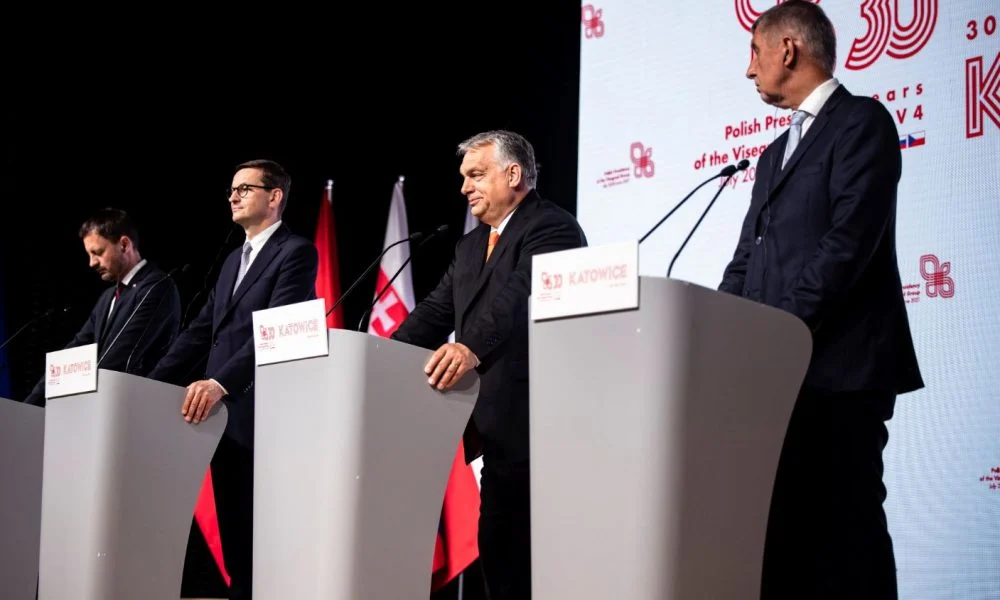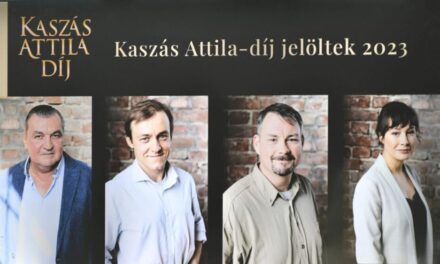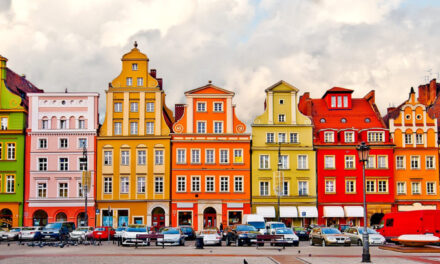The modern cooperation of the countries of the Visegrád group celebrated its thirtieth anniversary this year. In the initial period, the transition from totalitarianism to democracy, as well as the mutual promotion of Euro-Atlantic rapprochement, regional cooperation, in the last decade and a half, increasingly considers the preservation of the unique Central European identity and way of life as its primary task.
The series of crises shaking the Union (financial, eurozone, migration, coronavirus epidemic, energy), but especially the Brussels responses to them, brought to the surface several aspects of approach and interpretation that point to fundamental differences with other regions of Central Europe and the European Union between a generally typical way of thinking.
The Europe Project research , is an excellent opportunity to point out the areas where the differences between the V4 countries and the other countries are emphasized in relation to the values and vision of the future.
The citizens of the V4 countries are committed Europeans, but they are interested in the cooperation of nation-states instead of a federative Europe that represents homogenizing efforts.
One of the most serious strategic debates at the level of the Union today is related to its future. One camp wants to move the EU towards a federative European United States, while the other wants to keep it as a sovereign cooperation of nation-states based on mutual benefits and interests, as the founding fathers dreamed of. From the point of view of the outcome of the federative versus sovereignist confrontation, an important question is whether there is a European identity above the national identity. From Brussels and the old members, the Visegrad countries are often accused of not being sufficiently committed Europeans.
The research clearly shows that those who place their European identity above their national identity are still in the minority (20 percent) in Europe. At the same time, it can also be stated that among all the examined country groups, the V4 countries see themselves primarily as European (24 percent), while the proportion of those who prioritize their national identity can be said to be lower (71 percent).
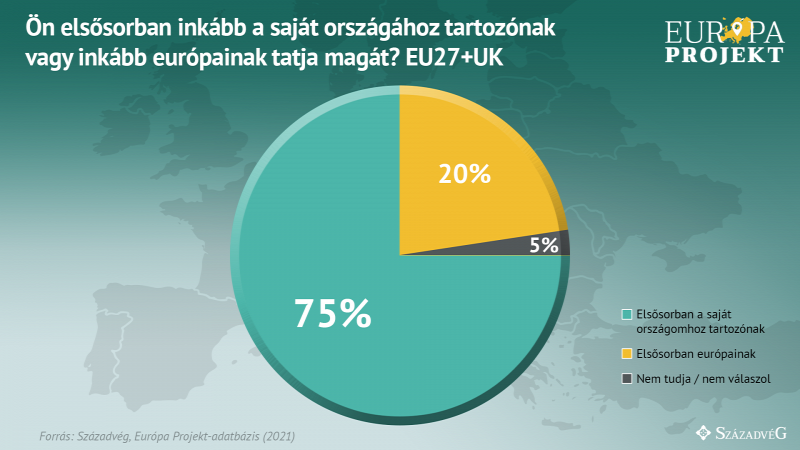
Source: End of the Century Europe Project
The research also reveals that, compared to the other countries, the V4 are more adamant about retaining the powers of the nation-state, and there are only a small proportion of those who would transfer more and more of these powers to the EU: 54 percent of the people of Visegrád are in favor of the nation-state in addition to retaining powers, while only 30 percent take a position on the contrary.
Central and Eastern European countries, including the members of the Visegrád Group, see the solution to the demographic challenges affecting Europe as a whole in supporting domestic families and childbearing and not in population exchange.
The research also points out that there is a significant difference of more than 10 percentage points in the issue of support for families and family formation between the typically Western European founders and the 20th century. Northern and Southern European countries joined in the 21st century, as well as in the 21st century. joined in the 19th century among the former socialist countries of Central and Eastern Europe. The latter group also includes V4s. While 90 percent of the population in former socialist countries consider it important to support families, this indicator is only 78 percent for older members.
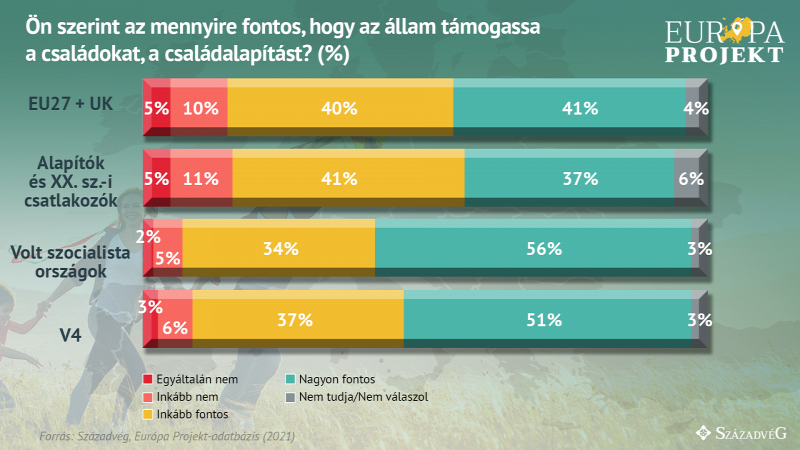
Source: End of the Century Europe Project
Central and Eastern European countries adhere more to Christian values
The migration crisis affecting Europe, in addition to the efforts of the postmodern tendencies questioning Christian-conservative and communal values, and interpreting individualism even in an extreme form, have brought cultural fault lines to the surface. The research shows that the citizens of the former socialist countries, including those from Visegrád, insist on the preservation of Christian-based traditions and culture in a significantly higher proportion than the old members.
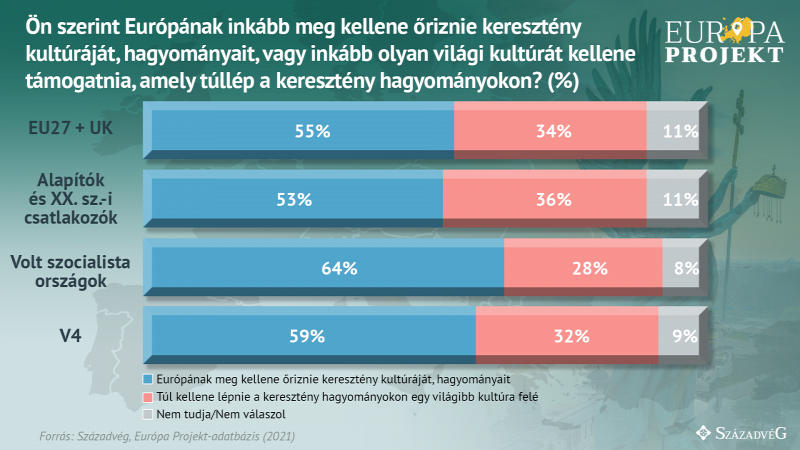
Source: End of the Century Europe Project
The research also highlights that the Visegrád countries together can become an unavoidable European political pole.
Source: origo.hu / Szazadvég
Featured image: MTI/Prime Minister's Press Office/Zoltán Fischer

